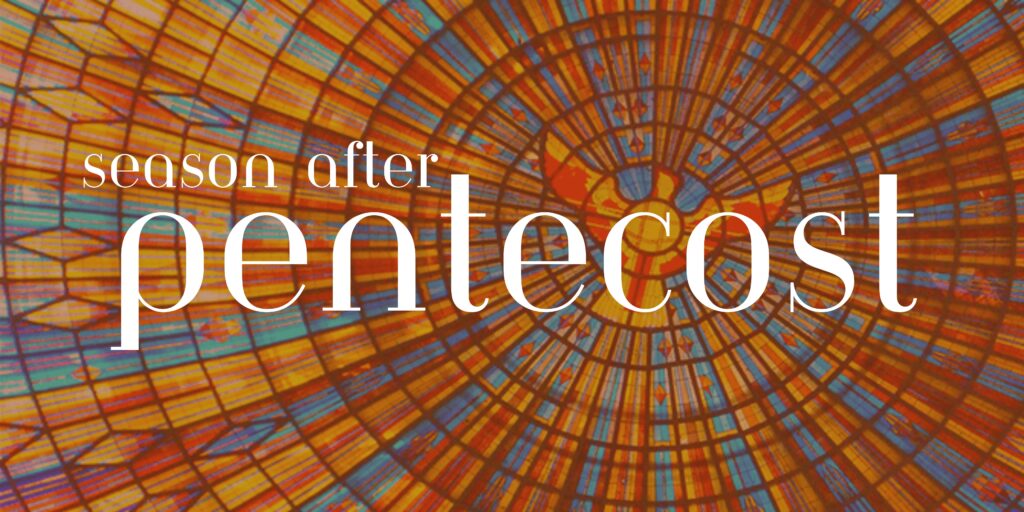
Stealing Pretzels
Like all children, I was (and still am) a girl full of questions, not just about what things are, but also what they mean. One very powerful memory about a question happened at naptime when I was five. I was standing at the kitchen table and wanted some pretzels which I wasn’t allowed to eat. I looked at them, thinking about a torturously long nap, and decided I had one chance. So, I  quickly shoved several pretzels into my mouth. Just then, I heard my mom call me from another room. I knew I didn’t have time to chew, so I ran to my bed hoping to avoid being seen. But alas, my mom saw me. She took one look at my lumpy cheeks and asked, “Trinity, did you steal pretzels?”. “No,” I lied. She got down to my level, looked me in the eyes, took my hands, and asked me quietly “What would God say?”. I wanted to continue the lie, but I couldn’t ignore the question she asked me. Immediately I saw what I had already done. God saw me steal those pretzels and He knew I had lied to her. I lied because I was afraid of being punished, but I knew I would have to accept the punishment because I couldn’t hurt God again. So, I quietly and painfully responded, “That I stole the pretzels.”
quickly shoved several pretzels into my mouth. Just then, I heard my mom call me from another room. I knew I didn’t have time to chew, so I ran to my bed hoping to avoid being seen. But alas, my mom saw me. She took one look at my lumpy cheeks and asked, “Trinity, did you steal pretzels?”. “No,” I lied. She got down to my level, looked me in the eyes, took my hands, and asked me quietly “What would God say?”. I wanted to continue the lie, but I couldn’t ignore the question she asked me. Immediately I saw what I had already done. God saw me steal those pretzels and He knew I had lied to her. I lied because I was afraid of being punished, but I knew I would have to accept the punishment because I couldn’t hurt God again. So, I quietly and painfully responded, “That I stole the pretzels.”
That story, however silly, has always meant a lot to me. That was the first time I remember thinking about God’s presence. My parents asked the question, “What would God say?” often, and I now know that it was to help us understand exactly that, that God is with us when we stray off the path and when we walk on it as well.
Another deeply impactful memory about a question shaping me happened around the same time as the pretzels. I asked my mom what it meant to be a Christian, thinking she would give me an answer that my five-year-old self could understand. But, quite to my surprise, she turned the question back to me. I thought about it and I told her, “To believe Jesus died on the cross for our sins.” She then continued to engage me in my question because she could tell I had more. As a result, my simple question turned into a discussion that made me feel loved. I wasn’t treated as a child with only a childish capacity to understand but as a child with a fully human capacity to understand. She let me ask questions, and she asked me questions because we were seeking the truth together, in relationship with one another and with God.
M y memories of growing up are filled with my mom showing my sisters and me how to practice being in the presence of God through constant immersion in the Word and in liturgical practices. We especially loved being immersed in the Proverbs. We would often listen to a book called Wise Words by Peter Leithart, fairy stories that illustrate the Proverbs to draw children into the big picture of Scripture. Like the Daily Office, our hours were shaped by rituals that turned into powerful traditions, such as our tree-decorating liturgy at Advent and lacrimosa cards at Lent. My parents surrounded us with the rhythms of living in God’s Kingdom, so we could love Him with our hearts, minds, and bodies.
y memories of growing up are filled with my mom showing my sisters and me how to practice being in the presence of God through constant immersion in the Word and in liturgical practices. We especially loved being immersed in the Proverbs. We would often listen to a book called Wise Words by Peter Leithart, fairy stories that illustrate the Proverbs to draw children into the big picture of Scripture. Like the Daily Office, our hours were shaped by rituals that turned into powerful traditions, such as our tree-decorating liturgy at Advent and lacrimosa cards at Lent. My parents surrounded us with the rhythms of living in God’s Kingdom, so we could love Him with our hearts, minds, and bodies.
At first glance, liturgy and questions seem like distantly related ideas. But, I think that both the liturgy and asking questions require us to participate in communal walks with God. We ask questions to know God and we participate in liturgy in order to be shaped by the rhythms he has set. My parents’ attentiveness to us all participating in the liturgy and asking questions together and the inherent relationship between the two has brought me incredibly close to God. I have been taught how to learn and to live out our calling in the Kingdom, and how to inquire and to know God’s presence. I am learning to know how to live faithfully in this world God has made for us because of the foundation my mother has laid.
Trinity Lindsay

